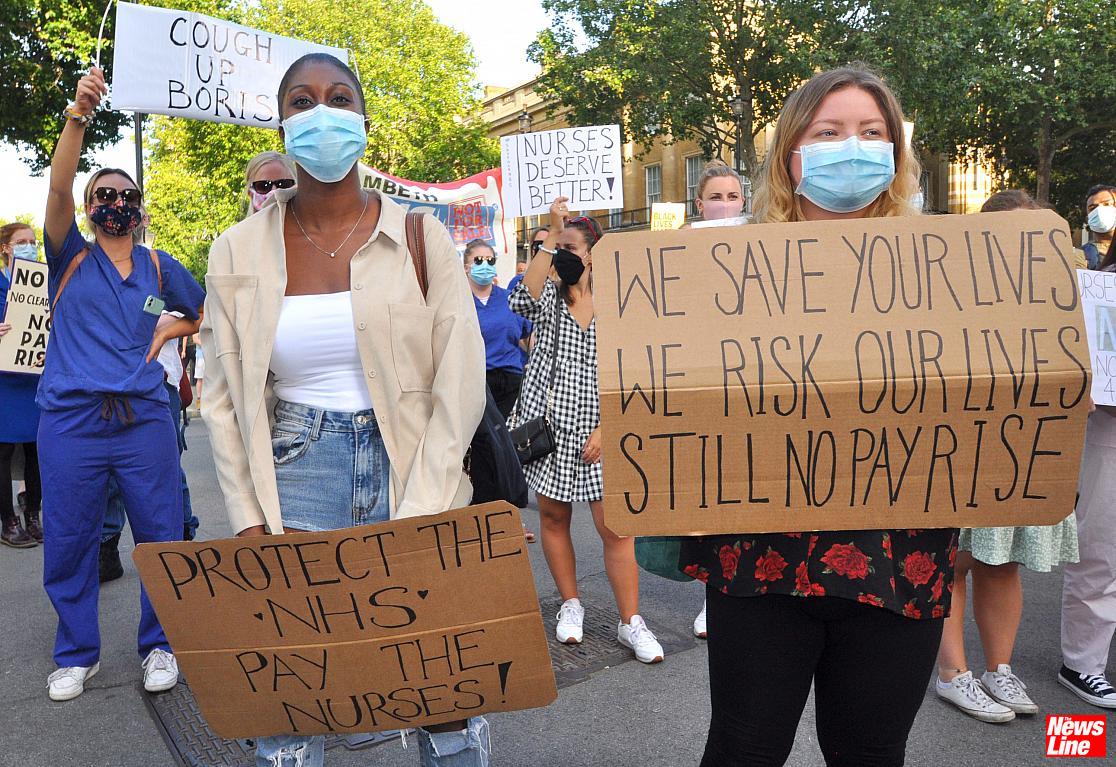
ENGLAND has an ‘unforgivable’ and ‘frightening’ NHS workforce crisis that severely threatens patient safety, says the BMA doctors’ union in research published today.
The BMA says the number of doctors per 1,000 people in England is 25 years behind comparable European Union nations, which means an estimate of almost 50,000 extra doctors are needed to meet the country’s current healthcare challenges.
According to the BMA research, there are 2.8 doctors across general practice and hospitals per 1,000 people in England, compared to an average of 3.7 in similarly developed EU countries.
It means England has the second lowest (following Poland) doctor-to-patient ratio compared with comparable EU nations.
The data shows that not one single area in England has 3.7 doctors per 1,000 people. The BMA estimates it will take until 2046 – 25 years – before the NHS has the number of practising doctors and doctors in training that it needs today to reach the current EU nations’ average.
Not only does this shortfall impact patient care and safety, but it also puts immense pressure on existing NHS staff, many of whom are being stretched to the limit and forced to take on extra, often unpaid work to make up staffing gaps.
The BMA also believes that England has nowhere near enough medical academics, public health doctors, or specialist occupational physicians, who play equally vital roles in the health service.
Dr Latifa Patel, acting chair of the BMA representative body and chief officer workforce lead, said: ‘It’s unforgivable that government has allowed the NHS workforce crisis to get to this point.
‘Today’s report not only highlights the sheer scale of doctor shortages in England, but also how woefully unprepared the nation is to meet the healthcare challenges of the future.
‘It’s frightening that we’ve reached a point where we’re short of 49,162 full-time equivalent doctors, but even more terrifying to think that this number could hit 83,779 by 2043, as our research suggests.
‘If this crisis is left to deepen, more patients will go without the care they need, their safety will be threatened, and existing staff will be pushed to the limit like never before, driving yet more talented healthcare professionals out of the NHS.
‘It’s clear that previous attempts to increase staffing levels have failed to bridge the gap.
‘In primary care alone, the overall qualified GP workforce has barely grown since 2015, with the number of GP partners falling by the equivalent of more than 900 full-time doctors in the most recent 12-month period.
‘This is despite government promises to increase the GP workforce by 6,000 by 2024 – this will likely only translate into about 3,400 FTE (full-time equivalent) GPs.’
Dr Andrew Goddard, president of the Royal College of Physicians, said: ‘There is no doubt the NHS needs more staff and we need to act now. More than a quarter of our experienced senior consultants are planning to retire in the next three years, and 56% of trainees have told us that they want to work part-time. The population is ageing and patient demand is growing.’
Dr Ian Higginson, vice president of the Royal College of Emergency Medicine, said: ‘We’ve known for some time that we are understaffed, both in Emergency Medicine and across the NHS, and the BMA’s analysis lays bare the scale of the problem. Our own findings show that our staff are exhausted and near breaking point due to workload pressures – which were difficult enough before the pandemic.’
- The number of patients waiting for NHS treatment in England have broken records for the second month in a row to reach 5.3 million, official figures show, prompting warnings the huge care backlog could exacerbate health service staff burnout.
It means the waiting list has grown by 606,501 over the last three months as patients have started using the NHS again, renewing fears it will hit seven million before the end of the year.